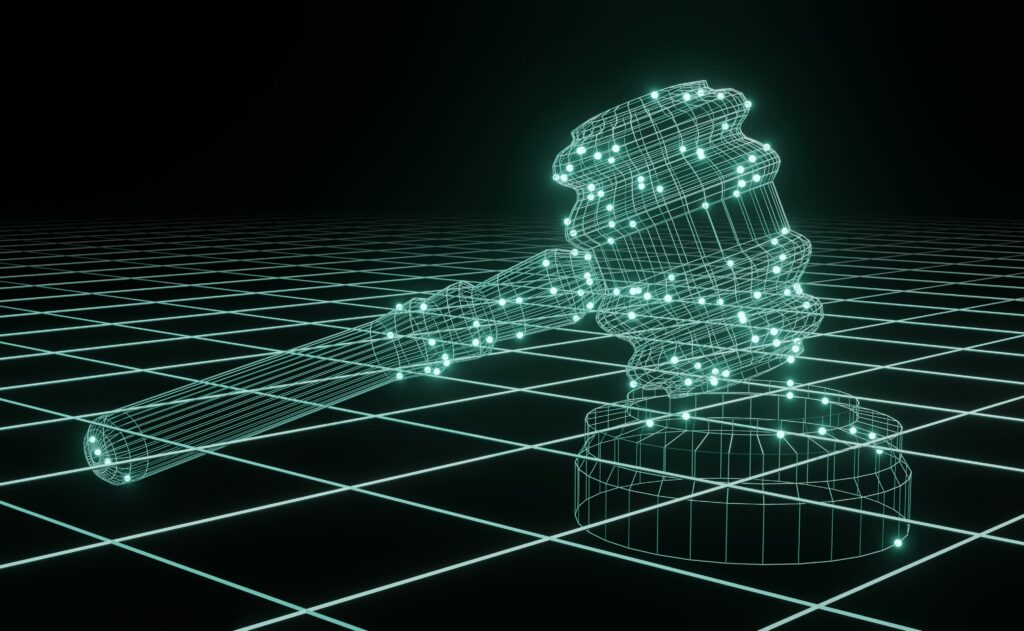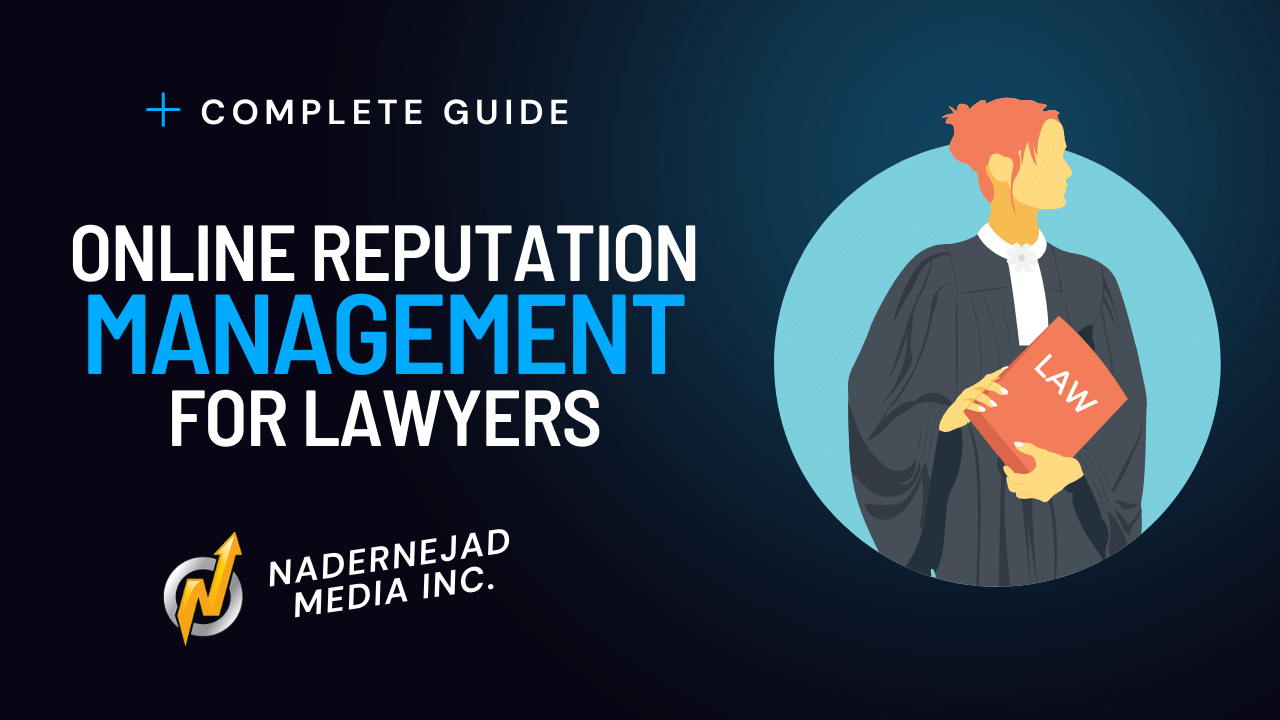Do you have a mugshot posted on The Georgia Gazette? We’ve worked with clients from all walks of life in the state of Georgia to suppress mugshots from the first page of Google and other search engines. We’ve worked with so many clients in fact, that we even made a video about it, and you can find that video below.
Understanding Your Right to Georgia Gazette Mugshot Removal
It should be noted that the law does permit a mugshot to be used in the publication or dissemination of news, commentary or advertisement by a newspaper, periodical, radio station or network, or television station or network.
GEORGIA ATTORNEY GENERAL'S CONSUMER PROTECTION DIVISION Tweet

What Georgia Law Says About Mugshot Removal
Under O.C.G.A. § 10-1-393.5, Georgia legislates clear directives for mugshot removal eligibility from commercial websites. This law stipulates that such websites are mandated to remove an individual’s mugshot at no charge, provided written notice is given within 30 days detailing the qualifying circumstances for removal. Circumstances include the restriction, non-prosecution, or dismissal of cases, as well as acquittals and specific scenarios involving drug offenses and probation. Somehow despite this, the Georgia Gazette has escaped with getting classified as a news company.
Consider Exploring Georgia’s Second Chance Policy to Seal Criminal Records
Recognizing the substantial number of Americans with criminal records—ranging from 70 to 100 million—the state of Georgia has acknowledged the need for a more forgiving approach towards individuals seeking to rebuild their lives. This approach manifests in the form of the second chance policy, a potential chance for those with a past criminal background, including non-violent offenses, wishing to mitigate its impact on their future.
The Role of the “Second Chance Committee”
In the spirit of providing a fresh start, the Georgia Gazette second chance policy has established the “Second Chance Committee” (SCC). This body delves into mugshot suppression factors and exercises its discretion to offer Georgia Gazette mugshot removal to qualifying individuals. It’s essential to recognize that while most states, including Georgia, have enacted expungement statutes, these often seal rather than completely erase criminal records, leaving individuals susceptible to the lingering effects of their past indiscretions.
Here’s some more information on Georgia’s Second Chance Act:
“As of 2021, Georgia’s Second Chance Act enables you to restrict and seal the records of most types of misdemeanor convictions, as long as four years have passed since you completed your sentence, and you have not gotten any new convictions during that time.” – Zimmerman Law, Georgia

The Legal Process of Removing Your Mugshot
If you’re ensnared in the mugshot removal process, understanding the legal channels for suppression is paramount. The journal of the American Bar Association in 2018 highlighted the critical need for regulation, characterizing the mugshot industry as a sort of “online extortion scheme.” Consequently, states like Arizona and California have taken strong measures against these websites, with California making it illegal since 2015 for such sites to charge for mugshot removals.
Under Georgia law compliance, the mugshot removal process is structured to protect citizens from undue harm to their reputations. Georgia law, enacted in 2013, mandates that mugshot websites accommodate a removal request without cost if the conditions, such as being found not guilty or having the charges dropped, are met. This request must be sent through a certified mail removal request to ensure both delivery and a formal record of the action taken.
Outlined below are the legal stipulations as per various state legislations that fortify your right to privacy and reputation management:
| State | Law/Statute | Mugshot Removal Conditions | Year Enacted |
|---|---|---|---|
| Arizona | Prohibition of solicitation for mugshot removal | No exceptions; payment cannot be requested | 2019 |
| California | Illegalization of charging for mugshot removal | No charges applicable | 2015 |
| Colorado | Free removal for the innocent | Free if found innocent | — |
| Florida | Prohibition of payment solicitation for mugshot removal | Subject to civil penalties without compliance | 2018 |
| Georgia | Regulation of mugshot website handling of removal requests | No fee for removal; state compliance essential | 2013 |
In Florida and Georgia alike, failure to adhere to these laws can lead to civil, and potentially criminal, penalties for the mugshot publishing website. It’s important to note, however, that the aforementioned Georgia law does not universally sanction certain behaviors. For instance, the Fulton County Jail in Georgia, while governed under stringent management policies, does not directly address the issue of online mugshot removal, but it ensures operational compliance with Georgia law in all other facets of inmate management.
To initiate a mugshot removal, sending a removal request via certified mail serves as the verifiable action that aligns with Georgia law compliance. It’s an approach to uphold the integrity of your legal rights and dismantle the detrimental online remnants of an past arrest. If you find yourself navigating this legal terrain, remain cognizant of state legislations, as they can significantly impact the outcome of your mugshot removal process.

Dealing with Mugshots in Ongoing Criminal Cases
When you’re entangled in active criminal cases, the shadow of your mugshot may loom large, complicating your ability to move forward in life. People with criminal records in Georgia face an unemployment rate of 27%, in part due to the stigma associated with such records. Current legislative efforts, such as those seen in House Bills 882 and 930, aim to refine the balance between mugshot retention policies and the rights of those charged. The proposed legislation ignites a heated debate between the need for transparency in ongoing legal proceedings and the push for arrest photo suppression to protect the accused’s reputation until proven guilty.
According to the Georgia Sheriffs’ Association, there are practical challenges associated with suppressing mugshots, including the additional workload of connecting court outcomes with arrest records. However, advocates like Mazie Lynn Guertin from the Georgia Association of Criminal Defense Lawyers argue in favor of protecting those who have not yet been convicted. Critics, including Nora Benavidez from the Georgia First Amendment Foundation, caution that suppressing mugshots prematurely could obscure public awareness of arrest trends and limit press freedom. Despite these concerns, the bipartisan support is notable, with the understanding that the bill’s progress hinges on the ability to reach the Senate for further deliberation.
| Legislation | Key Provisions | Impact on Mugshot Publication |
|---|---|---|
| 2013 Georgia Law O.C.G.A. § 35-1-19 | Requires removal of mugshots upon request for individuals not convicted of a crime within 30 days. | Aims to mitigate job loss and other negative repercussions for the accused. |
| 2014 Georgia Law | Prohibits law enforcement from posting mugshots online. | Restricts access but fails to apply to out-of-state mugshot websites. |
| House Bill 882 (Bruce) | Imposes a $500 daily fine for non-compliance in taking down innocent individuals’ mugshots. | Seeks to hold for-profit mugshot websites accountable. |
| House Bill 930 (Riley) | Limits release of mugshots until conviction, with exceptions for public safety concerns. | Adds a level of privacy for those undergoing legal processes. |
The quest to manage online reputation is further evidenced by the pervasive nature of websites like The Georgia Gazette, which posts mugshots from 80 counties, heedless of the crime’s severity. Instances have been documented where individuals, after a laborious process involving legal assistance, have been able to have their mugshots removed from such sites. It’s critical to note that while Matthew Sayle, the owner of The Georgia Gazette, asserts adherence to Georgia’s mugshot removal laws, the journey for many remains fraught with hurdles and setbacks.
Rep. Roger Bruce advises reporting entities like The Georgia Gazette should they not comply, to local law enforcement. Accountability is key, and with 10+ years of experience in online mugshot management, the Georgia legislature’s evolving stance on mugshot publication stands as a testament to the ongoing effort to reconcile the intricacies of the law with the foundational rights of its constituents.
Atlanta Democratic Rep. Roger Bruce is trying to do something to change all of that, according to Georgia Public Broadcasting.
Bruce proposed House Bill 882 this year, legislation that would restrict sheriff’s offices from posting mugshots until the person has been convicted. If someone had been proven or assumed innocent, they could request their mugshot to be taken down. If the website doesn’t comply, they get a $500 fine every day until the photo is deleted.
Designated mugshot websites, such as the Georgia Gazette, upload mugshots with little context about the charged crime. After someone pays a fee for them to take it down, they often upload the photo on a different website and ask for more money, Bruce said.

Suppressing Mugshots When Removal Isn’t an Option
If you find yourself facing the challenge of being unable to remove a mugshot from the Georgia Gazette due to public records law, rest assured that there are alternative options for mitigating the impact of those images. One such method is mugshot suppression, which can serve as a crucial component of your online reputation management strategy. This approach doesn’t erase the record; instead, it makes the mugshot less visible and less prominent in online search results.
One essential tool used in mugshot suppression is SEO, or search engine optimization. SEO strategies help to promote positive content and decrease the ranking of the mugshot on search engines like Google, thereby having less impact on your digital footprint. It’s not an instant fix, but a strategic and sustained SEO campaign can gradually move your mugshot further down in search results.
Imagine a mugshot buried under layers of positive news, articles, and achievements, thus reducing its accessibility and potential harm.
Conclusion
In reviewing the efforts to navigate the complexities of mugshot removal, it becomes increasingly clear that your rights and the path to online reputation repair are carefully outlined by Georgia’s legal compliance. The approach to eliminating past mugshots begins with a firm grasp of Georgia law and extends through a series of methodical steps towards suppression or removal. As demonstrated in cases addressed by resources like Nadernejad Media Inc. and various legal professionals, a strategic and informed approach is pivotal in restoring your personal online image.
Your journey toward repairing your online presence is supported by the Georgia Gazette’s commitment to adhere to state statutes and the guidelines of the consumer protection division. This ensures that all eligible requests for mugshot removal are processed with integrity, without compensation demands, securing your right to move forward from past legal encounters. By summarizing your mugshot rights and taking advantage of available services, there is a clear path to diminishing the impact of past incidents and forging a better future.
As depicted by countless cases, the conclusion drawn is one of empowerment; Georgia’s legal framework hands you the tools necessary for amending your public record. It echoes an acknowledgment of personal growth and the significant value in safeguarding the right to a second chance. Your ability to assert control over how your past is digitally reflected is not just a protective measure, but a proactive step towards personal redemption and professional advancement.
FAQ
How can I request the removal of my mugshot from the Georgia Gazette?
Under Georgia law, specifically GA Code § 35-1-19, you may request the removal of your mugshot if you meet certain criteria, such as your case being dismissed or you have been acquitted. You’ll need to send a written request to the Georgia Gazette’s registered agent via certified mail or statutory overnight delivery.
What is the eligibility criteria for the free removal of a mugshot in Georgia?
Your mugshot can be removed for free if your case has restricted access under Section 35-3-37, was never prosecuted, was dismissed, or no bills were returned by a grand jury, and in cases of acquittal, among other scenarios.
What is the difference between sealing and expunging criminal records in Georgia?
Sealing criminal records means they are hidden from the general public but may be accessible by certain agencies, whereas expunging records means they are removed as if the arrest or conviction never occurred.
What is Georgia’s “Second Chance Committee” and its role?
The “Second Chance Committee” is an anonymous group that reviews mugshot removal requests considering factors like offense severity, time elapsed since the booking, and final case outcome and sentence, especially for non-violent offenses or misdemeanors.
On what factors does the Second Chance Committee evaluate mugshot removal approval?
The committee considers the severity of the offense, the time that has lapsed since the booking, and the final outcome and sentence of the case. Cases with non-violent offenses or misdemeanors may have a higher chance of approval after a certain period.
What is the legal process for removing a mugshot in Georgia?
To legally remove a mugshot in Georgia, you must submit a formal request including all necessary personal identification and arrest details to the Georgia Gazette’s registered agent using certified mail or statutory overnight delivery. The mugshot must be removed within 30 days if the case meets specific criteria.
What options are available for dealing with mugshots in active criminal cases?
For active criminal cases, the Georgia Gazette may allow for the suppression of mugshots depending on the case status and if certain conditions are met. However, cases that result in conviction without expungement may not qualify for immediate removal.
What alternative options exist for suppressing mugshots when removal isn’t possible?
When removal isn’t an option, suppression through search engine optimization and content creation is used to lower the online visibility of mugshots, mitigating their impact on one’s digital footprint.
Can you outline a step-by-step guide for removing a mugshot from the Georgia Gazette?
The step-by-step process includes determining your eligibility, collecting necessary details like your full name and arrest info, drafting a removal request letter, and sending it through certified mail or statutory overnight delivery to the Georgia Gazette’s registered agent. You should avoid including sensitive data and wait for the 30-day period for removal.
How has Nadernejad Media Inc. been successful in removing mugshots?
Nadernejad Media Inc. specializes in navigating the intricacies of Georgia’s removal process and present compelling arguments for their clients, facilitating the restoration of their online reputation.
Are mugshots considered public domain, and why does it matter?
Mugshots are generally considered public domain under the Open Records Act; however, Georgia law regulates their dissemination, and it is illegal for websites to charge individuals to remove them.
What precautions should I take to protect my privacy during the mugshot removal process?
When submitting a removal request, do not include private information like Social Security numbers or driver’s license photos, as instructed by Georgia law and the Georgia Gazette, to prevent identity theft and protect your privacy.
What legal insights do attorneys provide about the mugshot removal process?
Lawyers can offer expertise in understanding and applying Georgia law, advising on the eligibility for removal, and strategic approaches for seizing the rights provided by public domain laws and the Open Records Act.
How does the ownership of Georgia Gazette affect mugshot publication and removal?
The ownership of the Georgia Gazette dictates its policies regarding the publication and removal of mugshots. As a compliant entity, the gazette adheres to Georgia’s Fair Business Practices Act and state statutes, ensuring eligible requests are processed without compensation.









